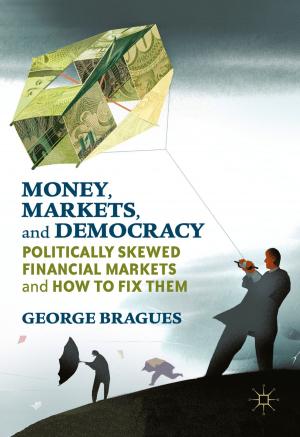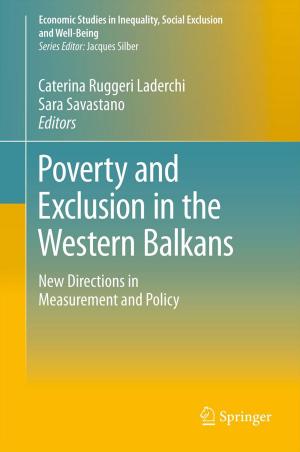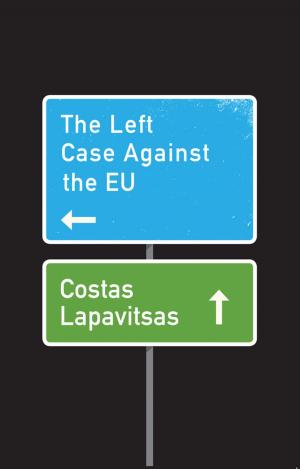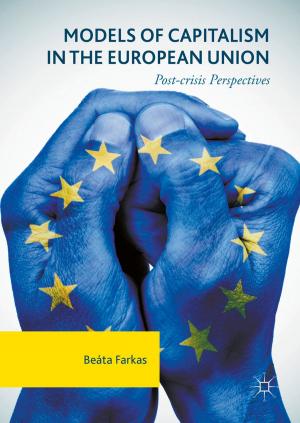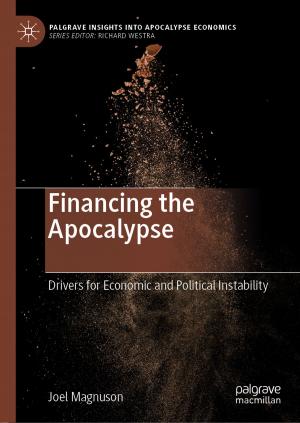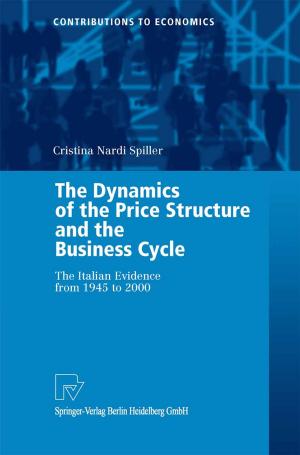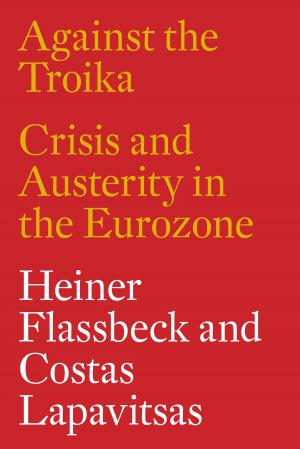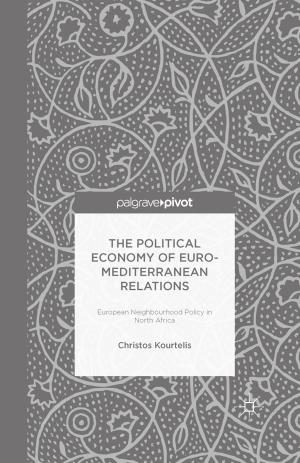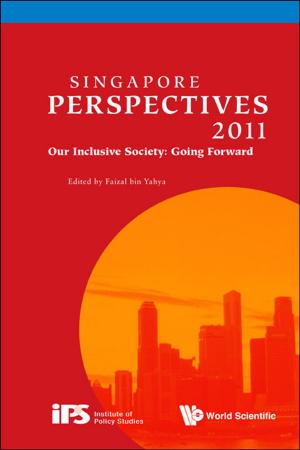Two Centuries of Parasitic Economics: The Struggle for Economic and Political Democracy on the Eve of the Financial Collapse of the West
Business & Finance, Economics, Comparative Economics, Nonfiction, Social & Cultural Studies, Political Science, Politics, Economic Policy| Author: | Basil Al-Nakeeb | ISBN: | 9781370817610 |
| Publisher: | Basil Al-Nakeeb | Publication: | October 29, 2016 |
| Imprint: | Smashwords Edition | Language: | English |
| Author: | Basil Al-Nakeeb |
| ISBN: | 9781370817610 |
| Publisher: | Basil Al-Nakeeb |
| Publication: | October 29, 2016 |
| Imprint: | Smashwords Edition |
| Language: | English |
For two centuries economists have dismissed the choice between morality and immorality as a personal preference, overlooking their opposite effects on economic efficiency, thereby, seeding the economic and political crises of the Western World. Hence, there is a need for a framework to expound and measure the effects of moral vs. immoral economic policies. Using the concept of externalities to develop a “unified theory of macroeconomic failure,” Two Centuries of Parasitic Economics provides a framework that rationally explains the causes of the deepening crises facing the West.
For example, economists have simplistically assumed that banning interest is a purely religious matter without economic implications, ignoring its considerable negative externality, whereas all deep economic crises are directly linked to excessive indebtedness, including the Great Depression and the global financial meltdown in 2008. Economists have underestimated the real cost of interest, which in addition to the nominal interest includes the phenomenal cost of the crises it seeds, including the loss of profits, tax revenue, and homes, the cost unemployment compensation, the escalating cost of bank bailouts, etc. Clearly, the public cost of interest far exceeds its private cost (the nominal interest), precisely the definition of a negative externality such as pollution, which calls for taxing interest to raise its private cost closer to its public cost to improve economic efficiency and optimize resource allocation. Still, academia has not called for taxing interest to encourage socially cheaper and more robust modes of financing.
More fundamentally, morality is consistent with the interest of the majority of society while immorality serves the interest of a tiny minority, typically, the wealthy plutocracy. Accordingly, promoting democratic economic policies is moral and economically efficient and vice versa. Thus, claiming that cutting the taxes of the ultra-wealthy while increasing the indirect tax burden on the majority provides trickle-down benefits is not just immoral but necessarily inefficient and irrational to boot.
However, those are hardly the only economic blunders. There is a sense of national pride in a strong US dollar as evidence of a strong America; neoclassical economists are guilty of underplaying this grave problem, fearing it could spark inflation. A grossly overvalued dollar is a negative externality, causing huge trade deficits that are approaching a trillion dollars annually. An overvalued currency is tantamount to a tax on exports combined with an imports subsidy. Consequently, the US has been rapidly losing its industrial and tax bases and its high-paying jobs, while its growth has faded.
Another moral and economic issue is the level of wages. In general, neoclassical economists and businesspeople oppose higher wages as detrimental to profits. This position has validity when using static microeconomic analysis. However, at the macro, dynamic, level the opposite is true: higher wages, by overcoming chronic underconsumption, expand markets, permit the realization of economies of scale, increase profits, expand the production possibility frontier of an economy, and spur economic growth. A century and a half ago, the economic policies of Chancellor Otto von Bismarck demonstrated as much, permitting German industrial production to overtake that of France and Great Britain in record time, stunning classical British and French economists. Similarly, the sharp rise in wages following World War II fueled the longest and fastest economic boom on record in America.
In the final analysis, improving economic efficiency must begin by overhauling the democratic process itself, to make it more competitive, fairer and insulated from the influence of money. Only then could endless wars of aggression that benefit the war profiteers stop, monopoly fade and competition and the welfare state flourish.
For two centuries economists have dismissed the choice between morality and immorality as a personal preference, overlooking their opposite effects on economic efficiency, thereby, seeding the economic and political crises of the Western World. Hence, there is a need for a framework to expound and measure the effects of moral vs. immoral economic policies. Using the concept of externalities to develop a “unified theory of macroeconomic failure,” Two Centuries of Parasitic Economics provides a framework that rationally explains the causes of the deepening crises facing the West.
For example, economists have simplistically assumed that banning interest is a purely religious matter without economic implications, ignoring its considerable negative externality, whereas all deep economic crises are directly linked to excessive indebtedness, including the Great Depression and the global financial meltdown in 2008. Economists have underestimated the real cost of interest, which in addition to the nominal interest includes the phenomenal cost of the crises it seeds, including the loss of profits, tax revenue, and homes, the cost unemployment compensation, the escalating cost of bank bailouts, etc. Clearly, the public cost of interest far exceeds its private cost (the nominal interest), precisely the definition of a negative externality such as pollution, which calls for taxing interest to raise its private cost closer to its public cost to improve economic efficiency and optimize resource allocation. Still, academia has not called for taxing interest to encourage socially cheaper and more robust modes of financing.
More fundamentally, morality is consistent with the interest of the majority of society while immorality serves the interest of a tiny minority, typically, the wealthy plutocracy. Accordingly, promoting democratic economic policies is moral and economically efficient and vice versa. Thus, claiming that cutting the taxes of the ultra-wealthy while increasing the indirect tax burden on the majority provides trickle-down benefits is not just immoral but necessarily inefficient and irrational to boot.
However, those are hardly the only economic blunders. There is a sense of national pride in a strong US dollar as evidence of a strong America; neoclassical economists are guilty of underplaying this grave problem, fearing it could spark inflation. A grossly overvalued dollar is a negative externality, causing huge trade deficits that are approaching a trillion dollars annually. An overvalued currency is tantamount to a tax on exports combined with an imports subsidy. Consequently, the US has been rapidly losing its industrial and tax bases and its high-paying jobs, while its growth has faded.
Another moral and economic issue is the level of wages. In general, neoclassical economists and businesspeople oppose higher wages as detrimental to profits. This position has validity when using static microeconomic analysis. However, at the macro, dynamic, level the opposite is true: higher wages, by overcoming chronic underconsumption, expand markets, permit the realization of economies of scale, increase profits, expand the production possibility frontier of an economy, and spur economic growth. A century and a half ago, the economic policies of Chancellor Otto von Bismarck demonstrated as much, permitting German industrial production to overtake that of France and Great Britain in record time, stunning classical British and French economists. Similarly, the sharp rise in wages following World War II fueled the longest and fastest economic boom on record in America.
In the final analysis, improving economic efficiency must begin by overhauling the democratic process itself, to make it more competitive, fairer and insulated from the influence of money. Only then could endless wars of aggression that benefit the war profiteers stop, monopoly fade and competition and the welfare state flourish.

